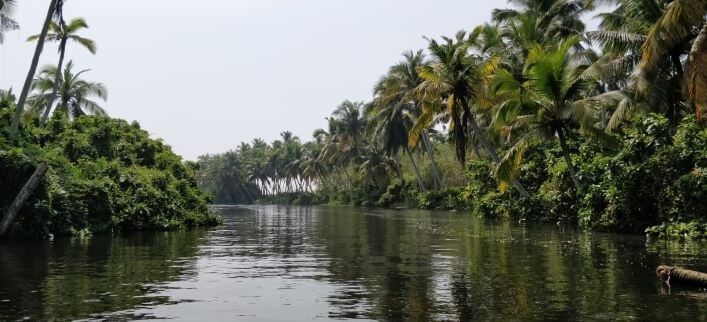

Hyderabad-based National Remote Sensing Centre (NRSC) of Indian Space Research Organisation (ISRO) in their latest study have made a worrying discovery. According to their analysis, large swathes of lush evergreen forest areas and mangrove forests are rapidly turning brown.
According to the data, 46,35,580 hectare comprising 14 forest types in the country’s core forest areas, including 41,480 hectare of mangroves, lost their greenness between 2001 and 2014. India’s forest cover measures 7,08,27,300 hectare. In all, 55,02,860 hectare of forests which includes core forests have turned brown.
[related_post]
The analysis found the highest decline in greenness over 20, 67, 350 hectares in tropical moist deciduous forest; maximum in Chhattisgarh, Odisha, Maharashtra and Madhya Pradesh (MP). This was followed by tropical dry deciduous 14, 07, 730 hectares, tropical wet evergreen (5,77,430 hectare), tropical semi evergreen (4,42,580 hectare), subtropical broad leaved (3, 21,130 hectare) and Himalayan moist temperate forest (2,93,800 hectare).
In core forests, more than 90% of the changes were recorded over wet evergreen, sub-tropical broad leaved, montane wet temperate, and Himalayan moist temperate forest types.
“Most of these protected areas belong to very fragile ecosystem and biodiversity hotspots. Any changes in the forest greenness or degradation of these areas lead to rapid deterioration of the ecosystem services. “The result of present study could provide first-hand information of prioritization and planning of conservation/restoration of the protected areas based on time series satellite observations,” stated the study co-authored by Abhishek Chakraborty, MVR Seshasai, C Sudhakar Reddy and VK. Dadhwal.
Previously many scientist had raised doubts about the over heating of the ocean affecting the health of mangroves. Adding to the mix are various human activities like coastal roads and infrastructure development that have further exacerbated the declining health of the “Blue carbon” ecosystem mangroves support.
Hotspots in danger
Worryingly, the study also found that among the hotspots where forests have been turning brown were wildlife sanctuaries, which are better protected. The Simlipal wildlife sanctuary in Odisha was the worst off, with 48,600 ha, followed by the Rajaji National Park in Uttarakhand and Achanakmar sanctuary in Chhattisgarh.
Additionally, 20 protected forest areas have also witnessed significant degradation. What makes this even more worrisome is that mangroves way to mitigate the effects of climate change like typhoons and cyclones, in addition to all the other benefits that these ecosystems provide to people. These revelations mean a worldwide move to preserve them better. For India, it is a wake-up call to save its coastline and large fisheries and related sectors, before its too late.
In a significant move toward advancing green energy and industrial growth in the state, Himachal…
Golabl chemical conglomerate BASF has announced that its now offering the world’s first biomass-balanced polyethersulfone…
In a crucial stint to bolster the biogas sector and sustainable dairying in the country,…
TotalEnergies SE has received approval to proceed with its Middlebrook solar and battery project in…
Andhra Pradesh Chief Minister Chandrababu Naidu has inaugurated the Rs 1,000-crore green hydrogen plant of…
The BITS Pilani has developed an innovative solution for managing landfill leachate, domestic septage, and…